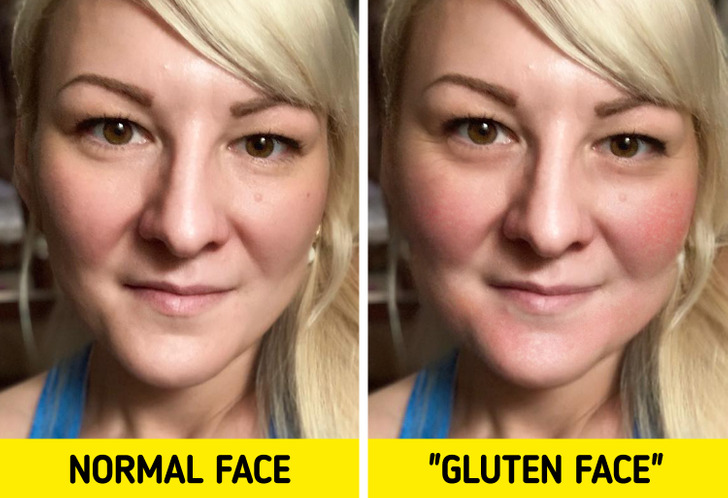Antwort Should we stop eating gluten? Weitere Antworten – Is it good to stop eating gluten

If you cut all gluten out of your diet, there's a risk that you could miss out on nutritious whole grains, fiber and micronutrients. Getting enough whole grains in your diet is especially important if you're at risk for heart disease or diabetes.A gluten-free diet is essential for those with celiac disease. However, there is little evidence to support its use in people without celiac disease, and it may increase the risk of nutritional deficiencies. Gluten is a protein found in wheat, barley, and rye. This protein helps foods hold their shape.Gluten intolerance may make you feel sick after eating gluten. You might get bloated, nauseous or gassy. Gluten intolerance causes a lot of the same symptoms as celiac disease, but it's not the same condition. Celiac disease is an autoimmune disorder that leads to damage to the digestive tract.

Is it bad to ignore gluten intolerance : If coeliac disease is left untreated, problems that can develop include: malnutrition, osteoporosis, depression and infertility. Untreated coeliac disease can also lead to a small (but real) increased risk of certain forms of cancer, such as lymphoma of the small bowel.
Why is everyone gluten intolerant now
It could stem from changes in the way grains are grown or the ubiquity of gluten in today's foods. The only thing that's known for certain is the serious toll gluten takes on the lining of the small intestine in people with celiac disease.
Will I gain weight if I stop eating gluten : As the lining in your intestines begins to heal on a gluten-free diet, your ability to digest and absorb food recovers. You will absorb more of the nutrients from food, including more calories, leading to weight gain if you continue to eat the same portion size.
Undigested gluten makes its way to the small intestine. Most people can handle the undigested gluten with no problems. But in some people, gluten can trigger a severe autoimmune response or other unpleasant symptoms. An autoimmune response to gluten is called celiac disease.

A person with gluten intolerance should eliminate gluten from their diet. However, consuming gluten occasionally is unlikely to cause severe health problems, unless a person has celiac disease.
Why is everyone avoiding gluten
Eliminating gluten is the only way to treat celiac disease, an allergic reaction to gluten that damages the lining of the small intestine. However, as part of a new diet fad, many people are going gluten-free to lose weight.Numerous studies have shown that diets that are gluten free tend to be deficient in protein, folate, iron, niacin, riboflavin, thiamin, B12, zinc, selenium, and fiber. In addition, they are more apt to have higher levels of nickel, which is highly allergenic to some patients.FAQs about gluten intolerance symptoms
The intestines make up most of the middle and lower abdomen, so “gluten belly” will look like any other type of lower digestive tract bloating. However, if bloating seems to be a regular or constant problem, that's a possible sign that it may be due to gluten intolerance.
It's common to feel constantly hungry during your first several weeks without gluten. You may want to eat all the time. Your body hasn't been able to absorb food properly for a while. So once it can, it'll try to make up for the deficit.
Should I avoid gluten if I have the celiac gene : Lifestyle changes to cope with celiac disease
You'll have to avoid gluten for the rest of your life. Even the slightest amount will trigger an immune system reaction that can damage your small intestine. Eating a gluten-free diet requires a new approach to food.
Why is gluten such a problem now : It could stem from changes in the way grains are grown or the ubiquity of gluten in today's foods. The only thing that's known for certain is the serious toll gluten takes on the lining of the small intestine in people with celiac disease.
Why wasn t gluten an issue 50 years ago
A study conducted in the US has shown that gluten intolerance is four times more prevalent than it was 50 years ago, and it's unclear why. Another theory is that modern medicine means we're simply better at diagnosing conditions like gluten intolerance, and modern communications allow greater awareness.
In fact, if your body can't process gluten you can have many problems including weight gain. However, weight gain isn't as common as weight loss. With gluten intolerance, your body has trouble absorbing the protein gluten that's found in wheat, barley, and rye.My energy improved, my weight went back to normal, and my hair stopped falling out. I felt better than I had in months. And nothing tastes as good as feeling healthy! Taylor was thrilled that perhaps she too had found a way to change her health for the better.
What happens when you don’t eat gluten for a month : Weight Loss: Some people may experience weight loss when they eliminate gluten-containing foods from their diet, especially if they previously consumed a lot of processed gluten-containing products. This weight loss can be due to reduced calorie intake or better digestion.





